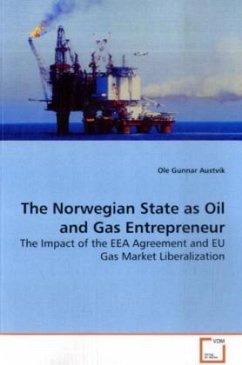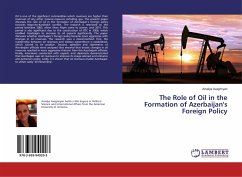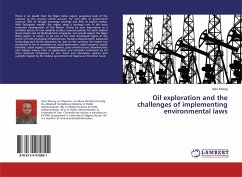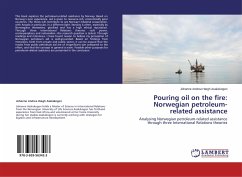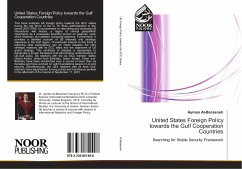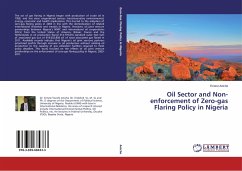
Oil Sector and Non-enforcement of Zero-gas Flaring Policy in Nigeria
Versandkostenfrei!
Versandfertig in 6-10 Tagen
51,99 €
inkl. MwSt.

PAYBACK Punkte
26 °P sammeln!
The act of gas flaring in Nigeria began with production of crude oil in 1958, and has since engendered serious trans-boundary environmental, energy, economic and health implications. This has led to the adoption of zero-gas flaring policy in 2003 in line with the domestication of related international initiatives and treaties in Nigeria. However, oil joint venture partnerships between Nigeria's NNPC and international oil corporations (IOCs) from the United States of America, Britain, France and the Netherlands in oil production flared 514,779,616 standard cubic feet (scf) of associated gas out...
The act of gas flaring in Nigeria began with production of crude oil in 1958, and has since engendered serious trans-boundary environmental, energy, economic and health implications. This has led to the adoption of zero-gas flaring policy in 2003 in line with the domestication of related international initiatives and treaties in Nigeria. However, oil joint venture partnerships between Nigeria's NNPC and international oil corporations (IOCs) from the United States of America, Britain, France and the Netherlands in oil production flared 514,779,616 standard cubic feet (scf) of associated gas out of 619,032,858 scf of total associated gas flared in 2011. Available records indicate that Nigeria's oil joint venture partners prioritized profits through increase in oil production without relating oil production to the capacity of gas utilization facilities required to meet policy deadline. This study focused on the effects of oil joint venture partnerships on the enforcement of zero-gasflaring policy in Nigeria, 2003-2011.




